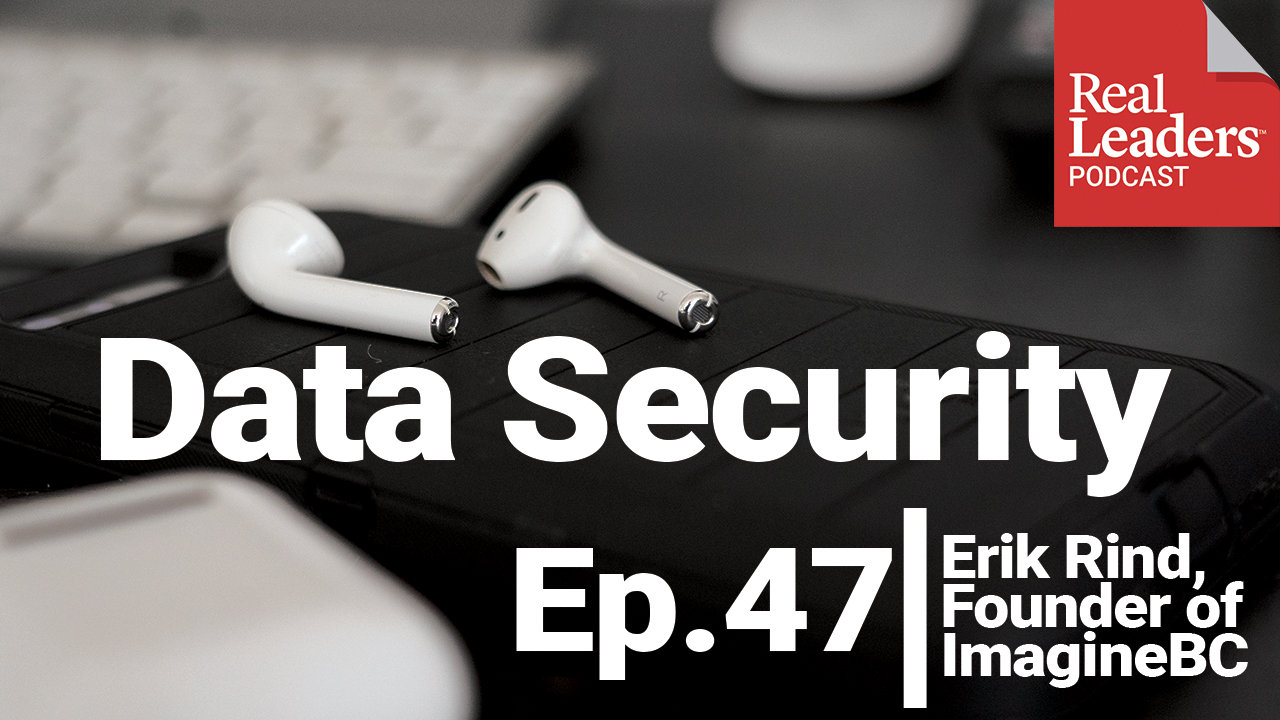An unusual concept right? At least that’s what Erik Rind, CEO of ImagineBC’s lawyers thought when they were crafting their Terms of Service policy for his company, a market provider for customer data stored on the blockchain. Erik joined me on Episode 47 of the Real Leaders Podcast to discuss what the future of personal data security looks like. Before we jump to how it works, maybe it’s important to reflect on why data security exists.
Whether you are surfing the internet, exercising with a health monitor, or swiping a credit card, your data (web clicks, blood pressure, expenditures, etc.) is collected, stored, sold, or in some cases confiscated.
My first question for Erik was simple, “In this day and age of surveillance capitalism with companies making money off of my personal data, your personal data, what are some of the ramifications when we allow companies to take that from us?“
“I think the ramifications are very significant or we wouldn’t have started ImagineBC in the first place.”
Some argue this is a human rights issue, others are submissive.
“But now it’s like how do you take on a Google or a Facebook? They’re so big, you can’t do it. My opinion is, of course, you can. It’s our data, we have complete control of it. We just need to band together.”
So, how do we band together?
Somewhere, a computer is pumping out continuous “blocks” of information, in order (like a twitter thread), bonded by a “chain” of encryption to other computers or nodes. Transactional data is stored on a public ledger for everyone to see but not edit. Your username, however, is sacred. You are the only one who knows who you are. This raises the one problem with blockchain, we do not know who anyone is.
That’s blockchain.
Our guest joked around mentioning that his lawyers were having a difficult time crafting their terms of service, telling the practitioners, “..look, we don’t even know who our members are and we don’t want to know! They have all control and we create a market for them.”
“What is this going to do for the common media conglomerate or to any businesses that are using these data lakes?”
“We just want you the individual to be the beneficiary. So the Cambridge Analyticas, the Facebooks, they get disintermediated. I don’t need to go to Dunkin Donuts; I don’t need to go to Facebook, to find targeted information on users, because I have that information available to me through an ecosystem like ImagineBC.”
Understand how Blockchain works from expert Jeremy Gardner on Ep.18.
Don’t be overwhelmed, thankfully for us humans, we are not who we were yesterday and that most of our data is always changing. The jury is still out on if blockchain will be adopted by the average consumer but if the stars align, imagine what blockchain could do for the future of data security.
Share this article with a friend who you think would find this story helpful!



































